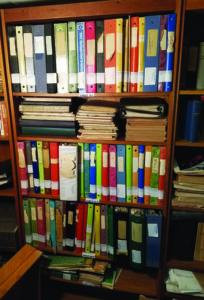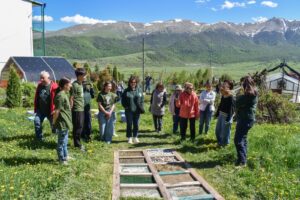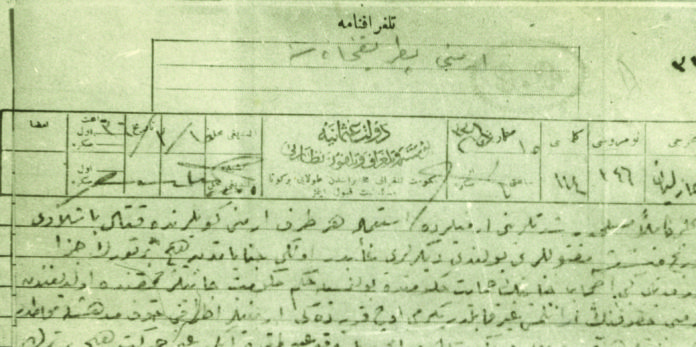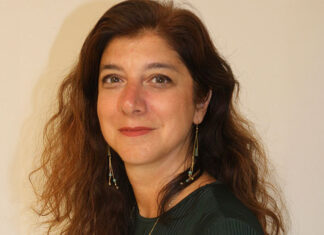BELMONT, Mass. — The National Association for Armenian Studies and Research (NAASR) has received one of the most significant archives of documents relating to the Armenian Genocide—the archive collected by the late Very Rev. Krikor Guerguerian — for research and study in NAASR’s Mardigian Library.
These materials are considered “priceless” by scholar Prof. Taner Akçam, who relied on them heavily for his book, Killing Orders: Talat Pasha’s Telegrams and the Armenian Genocide (Palgrave, 2018). Akçam holds the Robert Aram and Marianne Kaloosdian and Stephen and Marian Mugar Chair in Armenian Genocide Studies at Clark’s Strassler Center for Holocaust and Genocide Studies.

Among the important items in the Guerguerian archive are photographic copies of numerous official Ottoman telegrams which were used in the 1919-20 Military Tribunals but had since vanished, including one from Behaeddin Shakir, one of the founders of the Committee of Union and Progress (CUP), inquiring about details from the field on the deportations and killings of Armenians. Akçam considers this document as a clear expression of the CUP leadership’s genocidal intentions. The archive also contains photographic images of the now lost Memoir of Naim Bey published by Aram Andonian around 1920.
Guerguerian’s nephew, Dr. Edmund Gergerian of New York, preserved his uncle’s materials after his uncle’s death in 1988 and recently donated them to NAASR in April upon Akçam’s recommendation that the original materials come to NAASR and after meeting with NAASR’s Academic Director Marc Mamigonian.
“The Guerguerian archive is a tremendous addition to our rich Mardigian library holdings,” said Mamigonian. “Father Guerguerian collected materials from around the world and brought them together in one location. Many of these materials exist nowhere else or, if they do exist, are not accessible to the public.”
Guerguerian’s nephew had given Akçam access to the archives in 2015 and allowed him to digitize them. Akçam has plans to launch an online Guerguerian archive, partly through the support of grants from NAASR. “It is important, however, for researchers to have access to Fr. Guerguerian’s originals, in addition to the digital copies that Prof. Akçam will be offering online,” noted Mamigonian.








